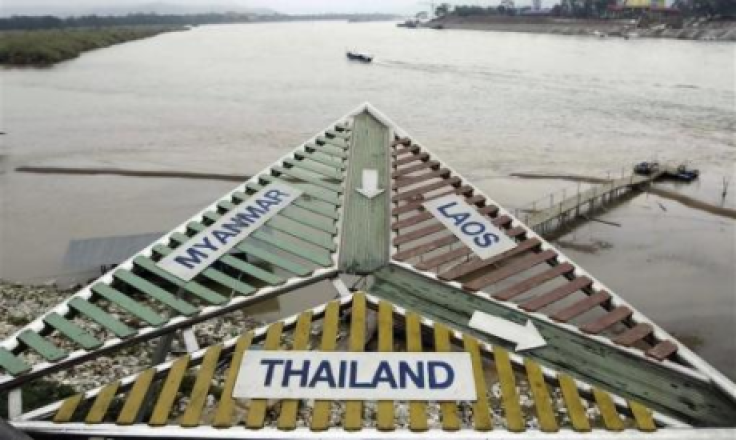China Executes Foreign Drug Traffickers Over Killing Of Chinese Sailors On Mekong River

Four foreign men were executed in China Friday for the killing of 13 Chinese fishermen on the Mekong River in 2011, state media reported.
Myanmar drug lord Naw Kham and three of his accomplices, Hsang Kham of Thailand; Yi Lai, who is stateless; and Zha Xika of Laos, were executed by lethal injection in the city of Kunming in southwest China's Yunnan province, Xinhua news agency reported, citing the Intermediate People's Court of Kunming.
The convicts were part of a group that ambushed two Chinese cargo ships, the Hua Ping and the Yu Xing, in October 2011 and killed crew members.
Naw Kham was the ring leader of a large drug trafficking outfit based in the Golden Triangle -- a drug-producing mountainous region in Southeast Asia that covers areas of Myanmar, Laos, Thailand and Vietnam, according to the Xinhua report.
The group was arrested in Myanmar and brought to China last May.
In November, Kham and his accomplices were found guilty of intentional homicide, drug trafficking, kidnapping and hijacking. Two other members of the gang avoided execution, with one receiving a death sentence with reprieve and the other an eight-year prison sentence.
The executed men, who were given an opportunity to meet close relatives Thursday, were shown on live TV being transported to their place of execution.
Naw Kham was dressed in a beige cardigan and gray trousers and was seen smiling slightly as he was marched, handcuffed, toward a reception at the prison in Kunming, the South China Morning Post reported. His fellow inmates followed a few minutes later.
Several social media users in China expressed contempt for parading the convicts in front of television cameras, the SCMP report added.
The Global Times newspaper reported in mid-February that Chinese authorities had considered sending an attack drone into Myanmar's air space during the manhunt for Naw Kham. However, the plan to bomb wasn't put into action since Chinese authorities were keen on arresting him alive, Liu Yuejin, director of China’s public security ministry’s anti-drug bureau, told the newspaper.
Li Zhuqun, a senior international co-operation official at the ministry, said the gang has been broken up, but “efforts to ensure the safety of the Mekong River will continue.”
"We will continue patrols and law enforcement co-operation with [Burma, Laos and Thailand] to safeguard shipping on the river," he told the China Daily.
© Copyright IBTimes 2024. All rights reserved.












